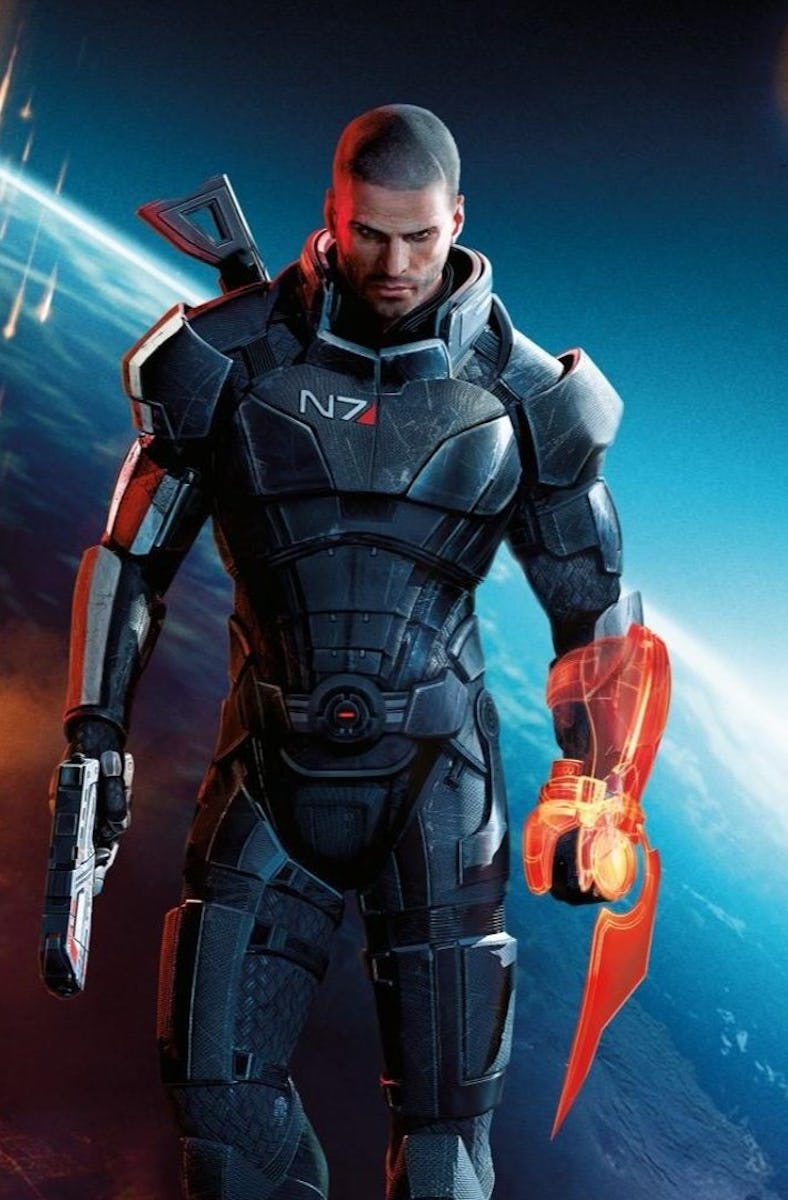Mass Effect 3’s Disappointing Ending Changed Fandom Forever
A dangerous precedent.

In 2012, there were few gaming events bigger than the release of Mass Effect 3, the end to a trilogy that would come to define the way video games approached player choice and consequence.
Mass Effect had quickly become the biggest hit BioWare had ever made, and expectations were high for the third chapter. But the strengths of the game were completely overshadowed by the extremely negative reaction fans had to its ending. The end result was BioWare and EA bending over backward to update the ending with DLC, but the event caused irreparable damage to both BioWare’s reputation and the franchise. Looking at it years later, the Mass Effect 3 ending backlash was a turning point in fan ownership and entitlement.
Mass Effect 3 wasn’t the first game that disappointed fans with its narrative choices, but it was the first time we’d ever seen a developer completely correct course after a game had already launched. The controversy on the ending blew up to such an extreme degree that BioWare developers started receiving online harassment and threats, something that’s sadly all too common these days. According to a documentary from People Make Games, these threats came even as developers were forced to crunch to add the new ending and DLC.
Mass Effect 3’s ending was infamous for making dozens of player choices suddenly not matter, but ultimately that was the thematic point BioWare was trying to make. The player’s choices didn’t matter.
While you can always make the argument that Mass Effect 3’s ending was thematically fitting, that’s not what the real issue is here — a developer was forced to alter its original vision because of the anger of fans. Changing the ending was bad enough on a base level, but it led to horrible working conditions for its developers, which would then have a knockdown effect as much of the team moved on to Dragon Age Inquisition.
“I remember us being pretty okay, but within two years once we got into Dragon Age: Inquisition ... everybody was fried, everybody was completely destroyed, morale was incredibly low,” ME3 cinematic designer Zachariah Scott tells People Make Games. “I don’t normally attribute much of that to Mass Effect, but it is safe to say that like, around that time, a lot of people were starting therapy.”
At this point, EA had decided that fulfilling fans' demands was more important than the health of its own employees, and that set a horribly dangerous precedent. Seeing that ending changed due to a fan campaign raised serious questions on how much ownership fans have over the art and entertainment they consume.
The “Extended Cut” DLC caused months of crunch for BioWare devs, while at the same time they received harassment and threats online.
During People Make Games’ documentary, gameplay designer and Brass Lion Games co-founder Manveer Heir noted that some developers on the team thought changing Mass Effect 3’s ending could be a “Pandoras Box.” Sadly, that prediction was all too apt.
The campaign to change Mass Effect 3’s ending gave fandoms palpable evidence that a company can change something if it gets enough flak. In the eleven since then, the relationship between developers/publishers and consumers has become even more volatile. Patching and changing games on the fly has become the norm, with studios adjusting to fan feedback at every step. In some cases, this has become positive, but equally, others are negative. Bloodstained changed its entire art style due to fan backlash and then there’s the seemingly never-ending backlash of the Pokémon games, with each title having extreme reactions to not including enough Pokémon, or not having “modern” graphics.
Looking past gaming, however, it’s easy to see how Mass Effect 3 might have been the domino that led to even bigger events, like the transition Disney made from The Last Jedi to Rise of Skywalker. That event feels strikingly similar to the Mass Effect 3 debacle, as Disney was so influenced by fan backlash that it completely course-corrected nearly everything established in The Last Jedi. This also led to irreparable harm to the overall image of the IP, just like with Mass Effect. Then, of course, you have the still-ongoing “Restore the Snyderverse” campaign that DC grapples with to this day.
The fan reaction and subsequent course correction from The Last Jedi feels eerily similar to Mass Effect 3, just on a larger scale.
To many, it may seem like there’s no way one video game opened the floodgates to fandom ownership, but there’s a visible shift that happened in entertainment after the release of Mass Effect 3. It’s disappointing because there’s so much Mass Effect 3 does right, so many fantastic standout character moments that wrap up the trilogy in meaningful ways, but the game has become singularly known for its ending backlash.
It’s easy to see how Mass Effect 3’s situation also played into the failure of Mass Effect: Andromeda, as fans were already eager to jump on the game for any reason. All I hope is that after everything, Mass Effect can still find a meaningful way forward not bound by pleasing the largest majority.
This article was originally published on